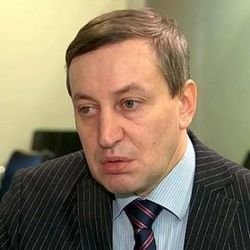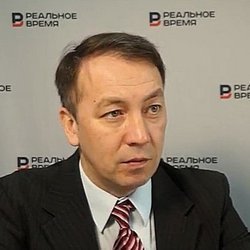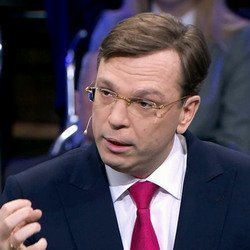Handout, support for banks, cancellation of ‘administrative markup’: what will help restore Russia’s economy
Russian authorities will unlikely reduce taxes — because of a shortage of budget revenue
A week ago President of Russia Vladimir Putin tasked the government with creating “a big plan to normalise the business life, recover employment and growth of the economy”. The next day, the still healthy prime minister of Russia promised to present corresponding groundwork by 25 May. The economists surveyed by Realnoe Vremya about how this plan should look like think that, first of all, the authorities should help the people by handing out money gratis but would rather help the banking system. At the same time, the government won’t highly likely lower taxes — because of already fallen incomes in April. Read in our report why Mishustin’s measures will be similar to Keynesian ones.
Growth plan
Russian President Vladimir Putin held the next meeting with regional leaders of Russia via teleconference on 28 April. The fight against the spread of the coronavirus infection was discussed there again, moreover, Putin finally admitted (he was expected to do this): “The epidemic has severely hit the economy, businesses. Many sole traders, self-employed citizens, small companies, including family enterprises people have been investing their energy, labour, savings, hopes in their development for years. We are obliged to support them, give them confidence in the future”. And he tasked the government with creating “a big plan to normalise the business life, recover employment and growth of the economy”.
The head of the country thinks that we can’t wait for a moment when the epidemic starts to decrease, we should prepare for the exit from the lockdown beforehand.
The next day Prime Minister of Russia Mikhail Mishustin instructed federal ministries and agencies with preparing a corresponding plan by 25 May. “I am asking the Ministry of Economic Development, Ministry of Finance, Ministry of Labour and Social Protection together with interested federal agencies of executive power to create and present the government a national plan of actions to restore employment, incomes and growth of the economy until 25 May,” he said at a meeting of the panel of the coordination council for the fight against coronavirus.
But on Friday already Mishustin said he tested positive for COVID-19, consequently, acting Premier Andrey Belousov will be doing the job now.
Handout, reduction of tax load and “deregulation” — what economists are offering
The economists surveyed by Realnoe Vremya suppose that there is no simple and easy solution in the current situation. Sergey Khestanov, an economist, docent of the Department of Financial Markets and Financial Engineering at RANEPA, paid attention to the way other countries are acting now — moreover, there are various scenarios — and singled out the so-called helicopter money, that’s to say, handouts to the population, as one of the priority measures.

Secondly, Khestanov thinks that Russian authorities should think about tax policy, as nowadays Russian businesses are carrying a serious general tax burden. Even if they love to use 13% VAT as a trump card, it is just a part of the truth. The other part is that all other taxes are high enough. And it turns out that the general tax burden for Russian business has reached 52-55%, while in Germany (a country with high taxes) it is 47%. It is necessary to reduce taxes, the economist believes, and first of all, “labour taxes” — contributions to the Pension Fund, Social Insurance Fund and so on.
“Thirdly, there is a big problem with excessive regulation in Russia. There is even such a fixed term — ‘administrative markup’. This not always means bribes, rather the creation of excessive difficulties that a business finds very troublesome and costly to overcome. It is everything linked with certification, for instance, which costs here much more expensive than in developed European countries (while it is unclear why some sectors should be certified in general). There is sense in thinking about deregulation. And then we can wait a bit. The economy develops automatically some time later in those countries with good conditions for running a business,” the economist notes.
“To change the key rate is to ‘chop wood with a scalpel’”
At the same time, Sergey Khestanov supposes that the reduction of the Central Bank’s key rate will result in nothing, while its influence on the economic growth in our country is exaggerated in general. Because, firstly, most small businesses and some small businesses in Russia (like in developed countries) develop with their own money, the key rate is an abstract notion for them. They borrow money when they notable expand their business. Moreover, there aren’t a lot of sectors where a business can be expanded, the expert pays attention.
“And even if we are talking about a large business, it can borrow money abroad, there are precedents. Quite many companies in Russia have bonds and loans from western banks. Quite a narrow segment of businesses need this, but those who need it have the access. I would leave the rate to rest in peace because the inflation level matters for businesses more,” Khestanov concludes.
Dmitry Travin, an economic, research adviser in the Centre for Modernisation Studies at European University in Saint Petersburg agrees with Khestanov: he thinks that changing the key rate to influence the economy now is like “chopping wood with a scalpel”. Nowadays the problem is much more serious, and the rate can influence it from a perspective of quality.

Why Russian authorities aren’t ready to lower taxes — because of shortage of budget revenue
However, Travin considers a change of tax policy doubtful too because it is a long-term influence factor. Taxes will unlikely go down, moreover, Putin is already raising them: there will be introduced a tax on deposit interest if the deposit is over a million but only from next year — “taxes aren’t introduced in a week”. The question of what consequences the reduction of the tax burden on businesses will cause isn’t simple, the expert thinks. He doesn’t dare to predict its consequences.
“But if taxes are lowered (it is unlikely the state will do this in general), budget problems in the country will get worse. Even if a reduction in taxes stimulates the economy (who knows when it will be stimulated). Oil and dollar incomes have already collapsed. Taxes from businesses that aren’t operating now have stopped. If taxes are reduced, some public worker will lose a salary or some state projects will completely close,” Travin warns.
Blogger and economist Albert Bikbov considers that the state should help in three areas. Firstly, to support strategic enterprises that can’t stop during the lockdown. Secondly, it is the enterprises of sectors affected by the pandemic and falling demand. And, thirdly, the biggest sector of enterprises that aren’t either on the list of affected sectors or list of strategic enterprises. Bikbov positively evaluates the Tatarstan authorities’ decision to allocate 1,3 billion rubles to help these enterprises, which sets the Republic of Tatarstan apart from other regions.
However, the economist is sure that the government won’t prepare a “normal document” with a clear list of measures by 25 May — it will be rather “flexible”, a framework, it will constantly be corrected and change in the process.
Russian authorities to offer a set of Keynesian measures?
 ️
️
In his opinion, the Russian authorities’ measures will be like Keynesian. We should remind that English economist John Maynard Keynes became the founder of a whole area in economics in the 20th century, he claimed that general demand (general costs in the economy) determine the general level of economic activity and unreasonable general demand could lead to a long period of high unemployment. It is considered today that his economic theory helped capitalistic countries of the West overcome consequences of the Great Depression in the 1930s (its provisions were in the foundation of Barack Obama’s policy in the fight against the crisis in 2008-2009). However, consequently, Keynes was actively criticised by monetarists chaired by Milton Friedman who considered the Englishman’s theory “naïve”.
Bikbov supposes that the Russian authorities will also try to stimulate demand. The question is how to stimulate it.
Helicopter money won’t help now, but banks will certainly be rescued
“Russian economists have already repeatedly offered a method of a direct handout of money to the population. It is a typical Keynesian measure, but it won’t be effective right now because it won’t be possible to spend the money because of the current restrictions. It is necessary to guess a moment to inject money when everything melts down, everybody will start working step by step, the industry will launch to stimulate demand for goods and services. I don’t believe that the Russian authorities will in the end write this measure down in their plans. They will probably write it down as an “extreme measure”, as head of the Central Bank Elvira Nabiullina says. But this issue won’t be considered even in the next six months,” Bikbov is sure.
Also, the Tatarstan economist considers that there will be announced measures on interest rates and taxes and even in enterprises’ loan restructuring, which aren’t on the list of affected or strategic companies. “Now Nabiullina will start gambling to reduce the key rate,” Bikbov thinks.
“A step has already been made. And this rate will reduce in June to spur the economic activity.”
“Undoubtedly, big loans will be granted to support the stability of the banking system. Banks will be rescued like during the previous crisis by filling them with money, a debt crisis is maturing because of the worsened economic situation, which is the worst thing. If now the banking system starts to fall, this means the end. Of course, the authorities will now be solving problems with monotowns. I don’t think we will get to food vouchers and cards, there is a safety margin,” Bikbov evaluates chances of the Russian economy positively.
No plan will help without establishing trust between society and authorities
However, not all economists agree with the measure Nabiullina called “extreme” (though she doesn’t buttress it herself), that’s to say, a handout of money to the population. For instance, Nikita Krichevsky, an economist, ex-researcher of the Russian Academy of Sciences’ Institute of Economics is sure that today this idea is actively discussed in the economic community and by some functionaries because there is a financed campaign:

Krichevsky thinks that the Russian authorities should start not with the next plan, strategy or scenario but an attempt at establishing a dialogue between the authorities and society. The problem of the Russian economy isn’t in the absence of clear plans, thinks the economist, but “no trust of people in the authorities”.
“In other words, the most important thing that must be done now is to develop a road map to recover the population’s trust in Russia’s authorities, finally start to speak with people, like humans, the people must be respected. And money, some resources are consequences. Any plan in Russia has just led to lobbyism and corruption,” Krichevsky concludes with sadness.